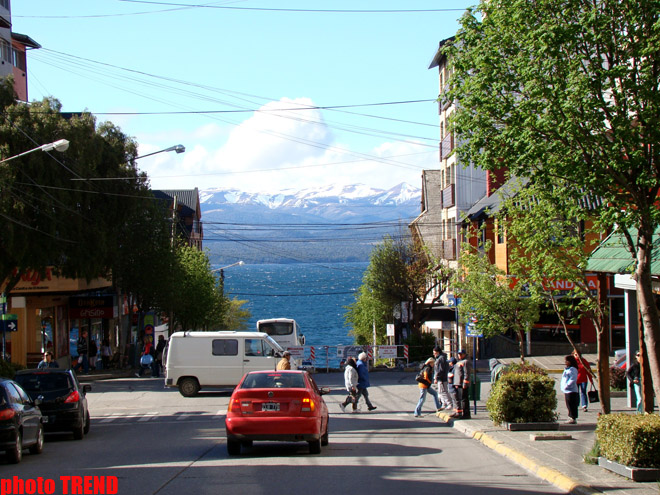Azerbaijan, Baku, Nov.21/ Trend, S. Agayeva/
Argentine authorities have been warned about the illegality of the Nagorno Karabakh separatist regime's head Bako Sahakian's visit to Argentina.
Azerbaijani ambassador to Argentina Mammad Ahmadzadeh, sent a letter to the chairmen of the Senate and Chamber of Deputies of the Parliament of Argentina Julio Cobos and Eduardo Fellner in connection with the country's parliamentarians' plans to meet with the head of the Karabakh separatists, the Argentine parliamentary news agency Parlamentario and Noticias del Congreso Nacional reported (http://www.parlamentario.com/noticia-41224.html;
http://www.ncn.com.ar/secciones.php?ssec=54).
The head of the Nagorno Karabakh separatist regime Bako Sahakian accompanied by the leader of the Prelate of the Artsakh Diocese of the Armenian Apostolic Church, Archbishop Parkev Martirosyan will visit Argentina and Uruguay later this month referring to annual donations for the Hayastan All Armenian Fund.
During the visit he is scheduled to meet with local philanthropists and leaders of Armenian assemblies, as well as representatives of various political circles, Armenian media outlets reported.
The letter notes that the Armenian side is trying to present this figure as President of the Nagorno-Karabakh Republic, Argentine media outlets reported.
"Despite the fact that various international organisations recognise this land as territory of Azerbaijan, Nagorno-Karabakh it is still occupied by Armenia," Argentine media outlets quoted the ambassador as saying.
The Ambassador said in his letter that not only Nagorno Karabakh, but also seven adjacent regions which amounts to 20 per cent of Azerbaijani territory, was occupied as a result of Armenia's military aggression.
Ethnic cleansing was committed in the occupied territories as a result of which more than one million people became refugees and IDPs. In addition, Armenia is destroying Azerbaijani historical and cultural monuments.
'The UN Security Council Resolutions No.822, 853, 874, 884 and two UN General Assembly resolutions support Azerbaijan's territorial integrity and demand the withdrawal of Armenian troops from Azerbaijani territory, as well as the return of refugees to their homes. The OSCE, Council of Europe, European Parliament and other international organizations also made decisions and resolutions supporting Azerbaijan,' the letter says.
'In his letter, Mr Ahmadzadeh said that the Azerbaijani government appreciates Argentina's support and respect for Azerbaijan's sovereignty and territorial integrity, enshrined in a protocol signed by the two countries in 1992 with the establishment of diplomatic relations and in 2010 in a Memorandum of Understanding concluded following the political consultations,' the parliamentary report says.
In conclusion the ambassador voiced his concerns to the chairmen of the Parliament Chambers of Argentina, given its position on the Nagorno-Karabakh conflict, as well as the possibility of developing of bilateral relations to intervene in the course of events to prevent this meeting.
The conflict between the two South Caucasus countries began in 1988 when Armenia made territorial claims against Azerbaijan. Armenian armed forces have occupied 20 per cent of Azerbaijan since 1992, including the Nagorno-Karabakh region and seven surrounding districts. Azerbaijan and Armenia signed a ceasefire agreement in 1994.
The co-chairs of the OSCE Minsk Group - Russia, France and the U.S. are currently holding the peace negotiations.
Armenia has not yet implemented the U.N. Security Council's four resolutions on the liberation of the Nagorno-Karabakh and the surrounding regions.






